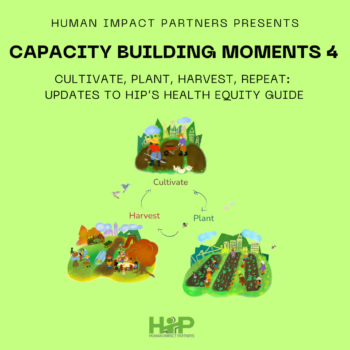| By Kim Gilhuly |
It was 8:00 pm, but people stayed.
It was 8:00 pm last Monday night, at the end of a long day hearing 20 bills in Massachusetts Legislature. But people stayed.
Teens skipped their normal Monday afternoon and night to speak powerfully — and clearly reached legislators’ ears — about having their dads locked up. Mothers missed work to testify. Women sacrificed getting a bed that night at a homeless shelter.
It was late, but people stayed on. They stayed to ask “what if” — what if we didn’t lock up parents and other primary caretakers of young children? What if parents were still held responsible but through alternative sentencing that wouldn’t mean serving time behind bars? In short, what if Massachusetts passed Senate Bill 770, known as the “Primary Caretakers” bill?
I was privileged to testify in support of the bill. I brought the public health perspective to a passionate chorus of voices that included mothers, teenagers whose dads had been locked up, formerly incarcerated women, providers of programs that can be alternatives to incarceration, social workers, and clinicians.
Below you can read my full testimony.
Spoiler alert: separating parents from children when caretakers are locked up is really bad for health — it makes it more likely a parent will be convicted for another offense, that their kids are eventually caught up in the justice system, and that kids experience lifelong physical and mental health ramifications. We can do better, there are proven alternatives, and the time for change is now.
HIP Testimony at the Massachusetts Joint Judiciary Committee on June 19, 2017
Good afternoon, Members of the joint judiciary committee,
Thank you for this opportunity to express my support for Senate Bill 770.
My name is Kim Gilhuly and I work at a nonprofit public health research organization, Human Impact Partners, as the Director of the Health Instead of Punishment program. We conduct research on the health and equity implications of criminal justice policies ranging from youth arrest, sentencing reform, providing for a secondary education for people in prison, and community-police relations.
Research overwhelmingly shows that a large part of what determines our well-being and health is the social and physical environment that we live in — more than genetics and health care. In this vein, the criminal justice system is a huge determinant of health for those who are impacted by it. Evidence is mounting that the policies resulting in mass incarceration and the criminalization of homelessness and addiction have caused major health inequities by race and income.
The current practice of separating mothers and fathers from their children to incarcerate them increases recidivism and the likelihood of kids getting caught up in the criminal justice system. On the other hand, keeping parents with their kids makes us all safer and healthier.
Think about how critical it is to ensure children have safe, stable, and nurturing environments with their families so they can thrive. Let me tell you about how taking parents away from their kids affects children’s health:
- Parental incarceration is classified as an Adverse Childhood Experience. There is a vast research base looking at toxic stress in childhood, and the lifelong physical and mental health problems that it causes.
- Children of incarcerated parents are much more likely to have psychological problems such as depression, anxiety, and PTSD.
- These children face a higher risk of disease and sexual victimization.
Research also shows that keeping kids with their parents is important to support intellectual development, mental health, and social skills. This is true for infants all the way up to adolescents.
Community-based alternatives — where parents can care for their families while healing and being accountable for the consequences of their conviction — work. Some example offerings of these programs are substance use disorder treatment, trauma-informed mental health services, education and job-training, legal assistance to retain housing, parenting and family skills classes, and home-based community supervision. Many of these evidence-based alternatives allow parents and children to stay together.
Massachusetts doesn’t have to continue the harmful and inhumane practice of separating children from their mothers and fathers. We can choose instead to help parents create safe and stable bonds, and ultimately create youth who grow up to be successful and healthy. By passing the Primary Caretakers legislation, you can help Massachusetts continue to be on the vanguard of health leaders. Let’s show leadership in health by treating families humanely and passing S770!
Here are some ways to get involved with Massachusetts-specific criminal justice reform efforts:
- Get informed on the health impacts of the “Primary Caretakers” bill with our fact sheet.
- Join the conversation on Twitter about reforming the justice system in Massachusetts with #cjreformma, and add your voice to support health instead of punishment!
- Read sociologist Susan Sered’s thoughtful summary of the relevant bills heard last Monday, including the “Primary Caretakers” bill I testified for.
- Check out the work of our partners on the Primary Caretakers bill, including the National Council of Incarcerated and Formerly Incarcerated Women and Girls and Families for Justice as Healing, which will post testimonies from this day. Our deep thanks to them and sincere appreciation for all of the dedicated women, mothers, teens, and people directly affected by this bill who shared their personal experiences and poignant stories on Monday.
To follow our Health Instead of Punishment work, sign up for the Human Impact Partners newsletter!




